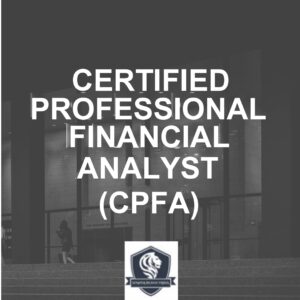The Certified Islamic Accountant (CIA) certification is designed to help senior managers, managers, and accountants to create value for their respective organization, based on the principles of Islamic accounting and finance. While managing value is not an easy task, the program creates understanding of important features, fundamentals and applications of Islamic accounting and finance. Throughout the program, participants will enjoy an interactive outcome-based learning where the facilitators will be discussing concepts and their applications in real life business, based on their collective corporate experiences. The facilitators will make the finance and accounting course content interesting through interactive lecture presentations, case studies and discussion. Participants will value how Islamic finance and accounting will help them to manage the bottom-line and create better value for shareholders.
Description
The Certified Islamic Accountant (CIA) certification is ideal for those who desire to be an agent of change following the principles of Islamic accounting and finance. While managing value is not an easy task, the program creates understanding of important features, fundamentals and applications of Islamic accounting and finance. At the end of the program, participants will achieve the following objectives:
- Demonstrating the role of Islamic accounting and finance in decision making.
- Applying Islamic accounting and finance principles in corporate reporting.
- Planning company’s operating, financing, and investing needs based on available instruments and financial markets offerings in Islamic finance.
- Constructing portfolio of Islamic wealth management, corporate zakat, waqf and tax
- Enhancing corporate performance beyond profitability.
Training:
For those wishing to undertake training to obtain certification, this course covers in an integrated manner how to: study the socioeconomic impacts of Islamic finance, such as Islamic Banking, Sukuk, Takaful, Islamic Accounting, Shari’ah Standard (AAOIFI); develop economic guidelines and standards and prepare points of view used in forecasting trends and formulating Islamic economic policy. Generally, in Bangladesh, Lebanon, Egypt, UAE, Indonesia and Malaysia we offer classroom-based training. Online training is also provided based on Market demand.
Assessments:
These are designed to validate your knowledge of the subject area, as well as increase employability skills, and coaching skills by testing that knowledge and your ability to apply it (i.e., competency).
The Certified Islamic Accountant (CIA)TM Board Certification is awarded to individuals who have met our requirements.
Training provided in Bangladesh only by our partner – AFMA Bangladesh
AFMA and AFMA Bangladesh are accredited CPD Providers of CMA Australia New Zealand.




